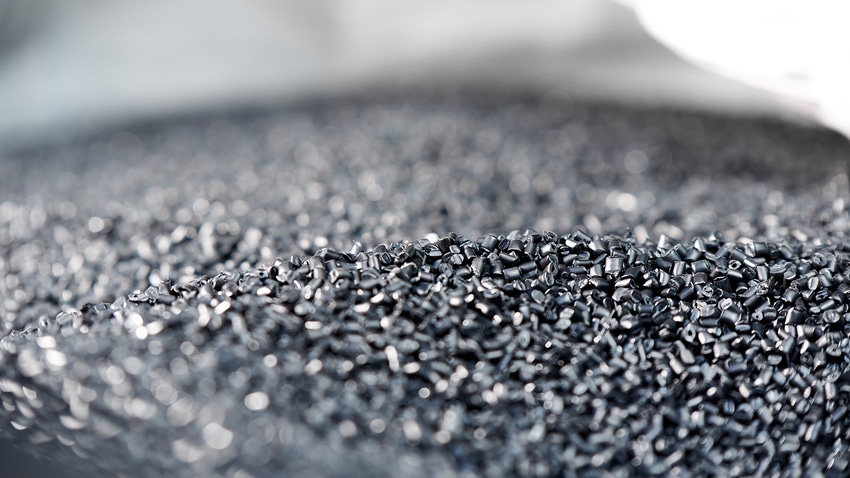Resin Price Report: PE Holds Steady, PP Pricing Softens
PE prices remain up an average of two cents for the month, while PP prices slide as spot monomer costs pull back.
January 31, 2024

The spot resin markets were very busy last week, reports the PlasticsExchange in its Market Update, with transactions favoring bulk railcars. Polyethylene (PE) prices held steady and remain up an average of two cents so far in January. Polypropylene (PP) prices gave back half of their earlier January gains, as monomer prices eased a bit, but they are still up $0.015/lb for the month.
The flat-to-down pricing came after a somewhat uneventful Arctic blast that tested the Gulf Coast. While some monomer and resin production was reduced and some issues remain, only Ineos declared force majeure on PP from its Chocolate Bayou plant in Texas.
Supplies are abundant, but market feels tight
Producer resin inventories are considered heavy, but they have still not released much material to the spot market this month. Resellers’ inventories are relatively thin, adds the PlasticsExchange, so while overall supplies are plentiful, the market feels tight.
North American PE exports remained robust, as producers leverage their cost-advantaged feedstocks to serve ongoing international markets they have been developing over the past several years against their expanded capacity. Export demand has been further supported by recent logistics limitations in the volatile Red Sea and Panama Canal, which have disrupted typical trade routes leading to mismatched regional supply/demand while also sending ocean freight prices soaring.
Strong demand for linear-low-density PE
PE trading activity was strong, with above-average completed volumes. Prime prices were steady but firm. Linear-low-density PE was the biggest mover across film, injection and rotomolding grades. High-density PE for injection and blow molding also attracted buyers, while low-density PE for film saw lighter turnover. A good flow of well-discounted off-grade railcars helped spur demand, reports the PlasticsExchange, but producers have limited spot Prime railcar availability for the month as they maintain upward pressure on the market in an effort to implement a nickel increase nominated for January. Meanwhile, additional producers have proposed another five-cent increase for February, which was expected to follow. Although spot PE prices have moved higher since the mid-December trough, the rise probably will not be enough to award producers with a contract price increase in January. But the jury is still out, and much stranger things have happened, notes the PlasticsExchange.
In fact, contract prices reached a new level of opacity in 2023, as industry-recognized indices marked PE up $0.09/lb over the course of the year, while spot PE prices were actually down, writes the PlasticsExchange in its weekly Market Update. Large and otherwise savvy buyers that monitor the spot market accumulated large unofficial non-market adjustments along the way.
Sliding PP prices prompt flurry of activity
Receding spot monomer costs shook up the PP market and led to some softer pricing, which facilitated a multitude of resin deals. Sliding prices generated a high volume of deals across a variety of PP grades, including homo-polymer PP 12, 20, and 35 melts; and copolymer PP 20 melt, 2, 3, and 4 izods, as well as No Break resins. Random Clarified 35 and 55 melt also transacted, as did several railcars of homo-polymer PP as high as 2500 and 3000 melt for compounding and melt-blown applications. Prime PP prices gave back $0.015/lb at the PlasticsExchange trading desk last week. There has been a large range of PP prices transacting within the industry, however.
On the low side, railcars of rougher off-grade transitional material and otherwise less-desirable specs have been deeply discounted and sometimes priced under monomer. On the top end, Prime copolymer PP railcars have been breaching $0.70/lb and packaged homo- and copolymer PP truckloads have been running the full $0.50 to 0.60/lb range based on spec and quality. January PP contracts should settle up around $0.03/lb along with polymer-grade propylene (PGP), according to the PlasticsExchange. At least one producer has nominated an additional $0.04/lb increase beyond the change in monomer costs for February.
Final data was released by the American Chemistry Council (ACC) for December, which confirmed the inventory build to a record two billion pounds, alongside the second-lowest domestic PP sales volume of 2023. Availability is expected to be a bit tighter this month because of the Ineos force majeure, but overall supply positions are still long even as prices move higher.
Read the full Market Update, including news about PGP pricing and energy futures, on the PlasticsExchange website.
About the Author(s)
You May Also Like




